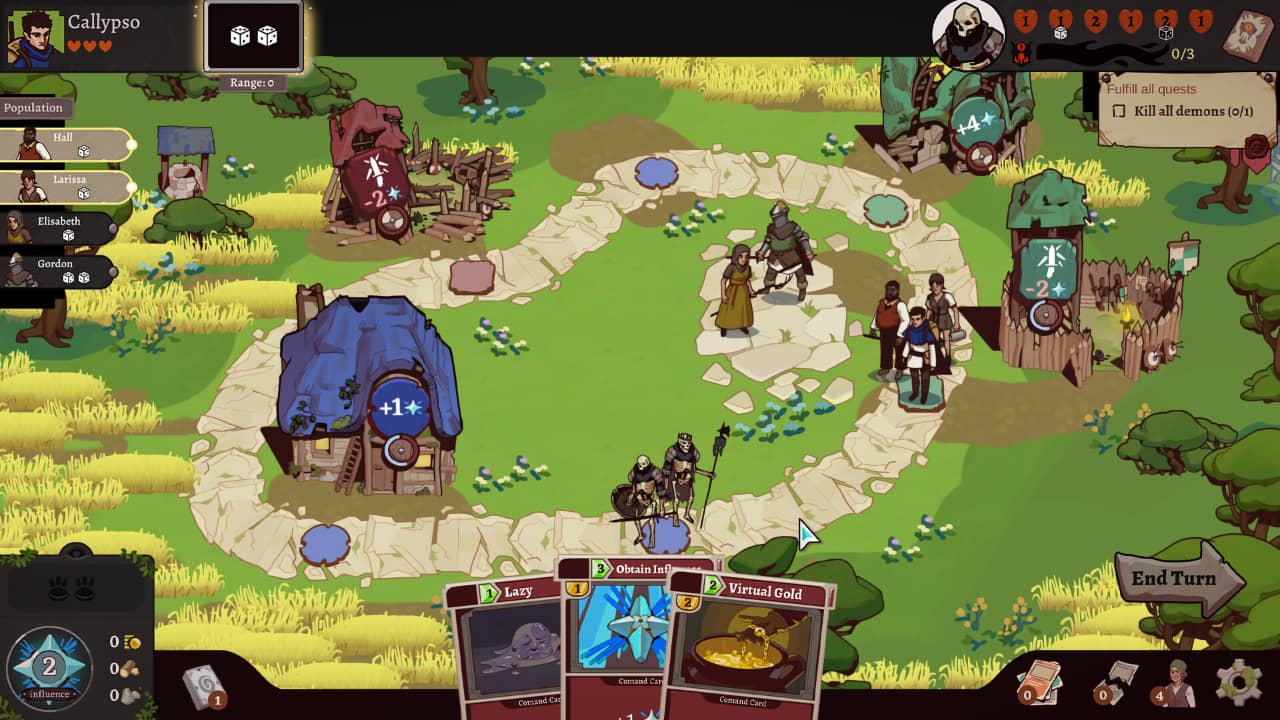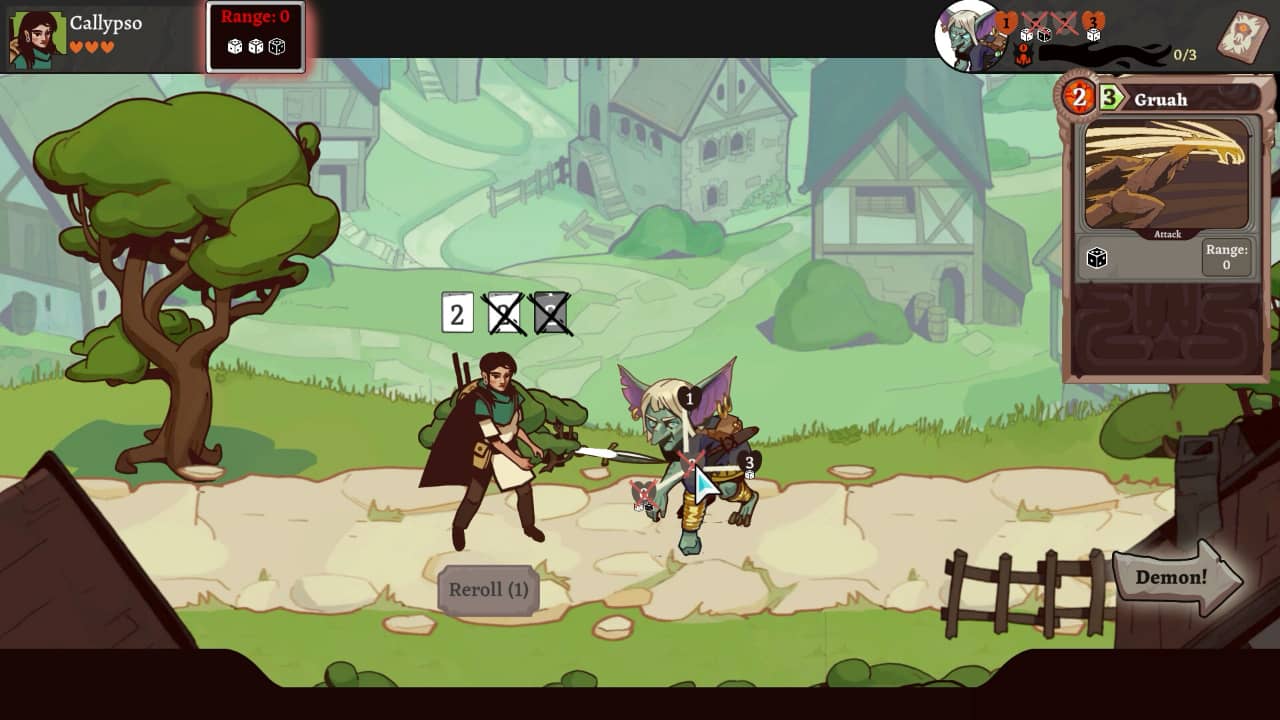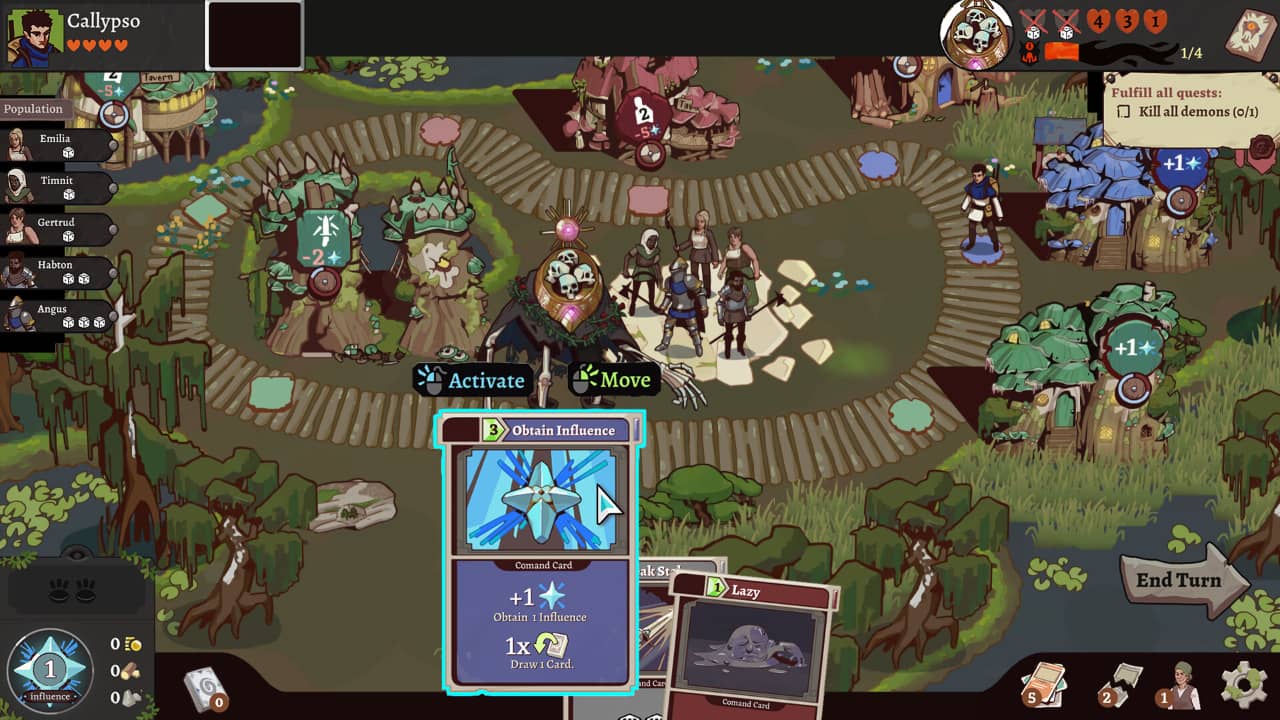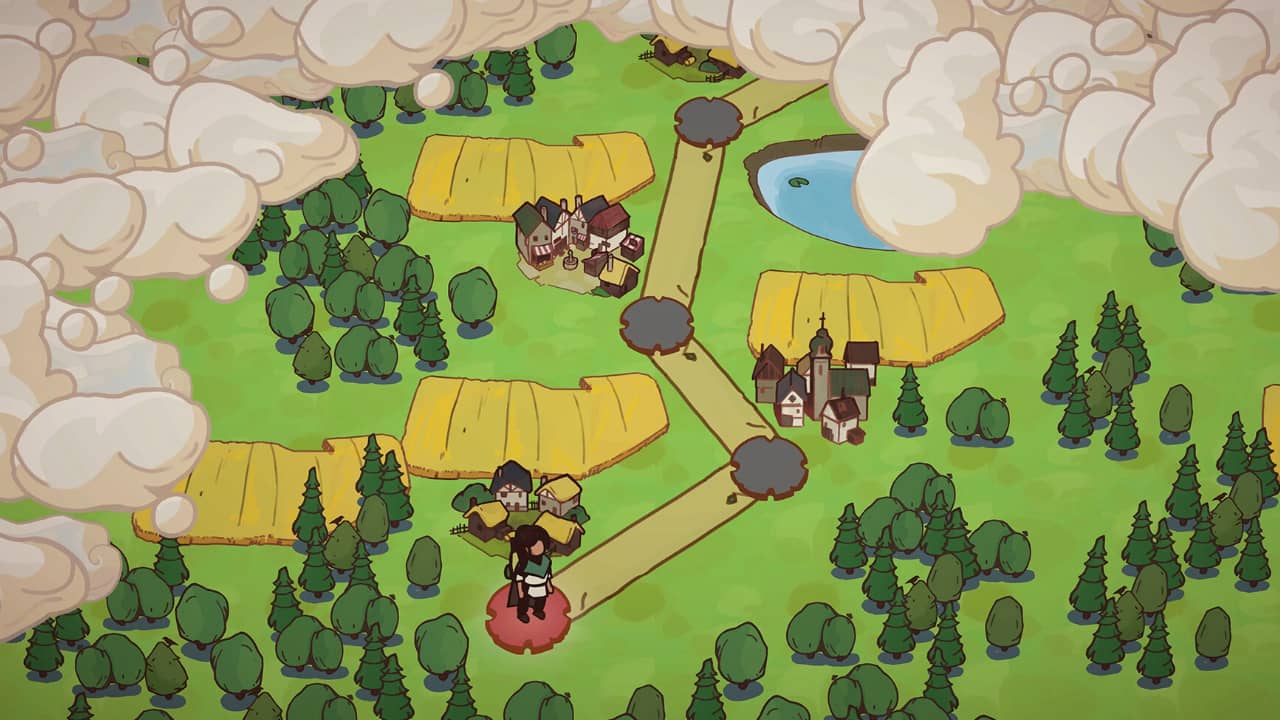Demon Loop is an Early Access deck-building title from Magnolia Games, written by Alexander Pfister - a renowned author who has worked on titles such as Great Western Trail, Maracaibo, and Port Royal. In this adventure, you play as a demon hunter who bands together with the locals to ward off demons and uncover the mystery of the loop.
Tutorials are notoriously easy or feature walls of text that you'll skip through and stumble over through gameplay. Demon Loop is more of the latter, with slightly convoluted actions such as using a card to apply its skill with the left button or pressing the right button to move. However, this gradually becomes more natural as play continues.
In the opening scene, it becomes clear that your character will frequently move around the board to gain influence and evade incoming attacks. The influence in question is almost like mana points required to pull off many of the cards within your deck, and they are generated through interacting with the board and certain produce cards.

Demon Loop Early Access Preview
Tiles within the game arena are colour-coded, so these cards must be consumed in their allocated spots. With enemies also occupying the space in real-time, it's important to keep moving, so if your card doesn't match up with the colour you're standing on, you effectively discard it by using it as a movement card. It's not worth the combat risk - especially when you don't have a weapon.
Knowledge and other currency are acquired to purchase new cards within the deck codecs. This isn't relatively so straightforward to begin with, as in many of the scenarios, you will have to learn a new skill by selling your knowledge card. That would be the ideal situation as, later on, you have to combine multiple knowledge cards with other factors and complete all of these objectives within a limited number of moves.
When starting Demon Loop, like with any rogue-like, there are a few hurdles to contend with until you start unlocking the game's potential. Permanent upgrades are on offer, and when obtaining crystals, these can be invested into your character or even your base. Starting points like increased health seem a given, but generating influence at the start of each skirmish is essential.

Demon Learning Curve
Health is relatively minimal, so combat should only be encouraged when confident you have a chance. These sequences shift away from the board and are a side-on affair where you must roll the die to damage your opponent. Specific numbers are required to eliminate them, but you can reroll if you don't use up all the die. The art style here is interesting as it's the same as the main board, but world maps and interactions look like a different artist completed them yet still managed to encapsulate the world-building effectively.
Demon Loop has quite a learning curve - especially for those unfamiliar with or who only sometimes play board games. While it isn't as complex as Gloomhaven or some aspects of Baldur's Gate 3, many different sections of the game aren't necessarily overwhelming, though quite demanding if this is all new territory. I had to repeat one tutorial numerous times as I didn't get it. After completing it, it was more of a chore than any joy.
Depending on the target audience, those baby steps can be a slight deterrent if patience is lacking. From a personal perspective, the game took some time to get into. However, patience is a virtue, and once scratching the surface of gameplay and getting a feel for the movement around the board, the separate combat scenes, base-building, narrative development, and much more, it's evident that Demon Loop is pretty darn epic.

Demon Loop Early Access Summary
Incorporating so many different play styles into one game can be too much, but given time, it does work. Over the years, RPGs have grown unnecessarily complicated, yet here it's justified. Demon Loop is still growing on me, but it goes without saying that this is one of the most meticulous games in the genre, and players with the time to invest will be rewarded with engaging gameplay and mechanics.










